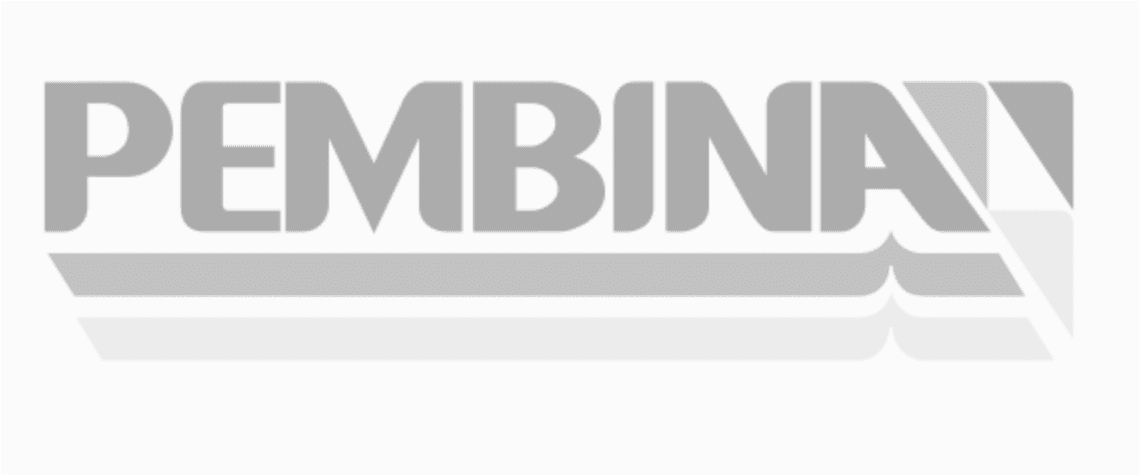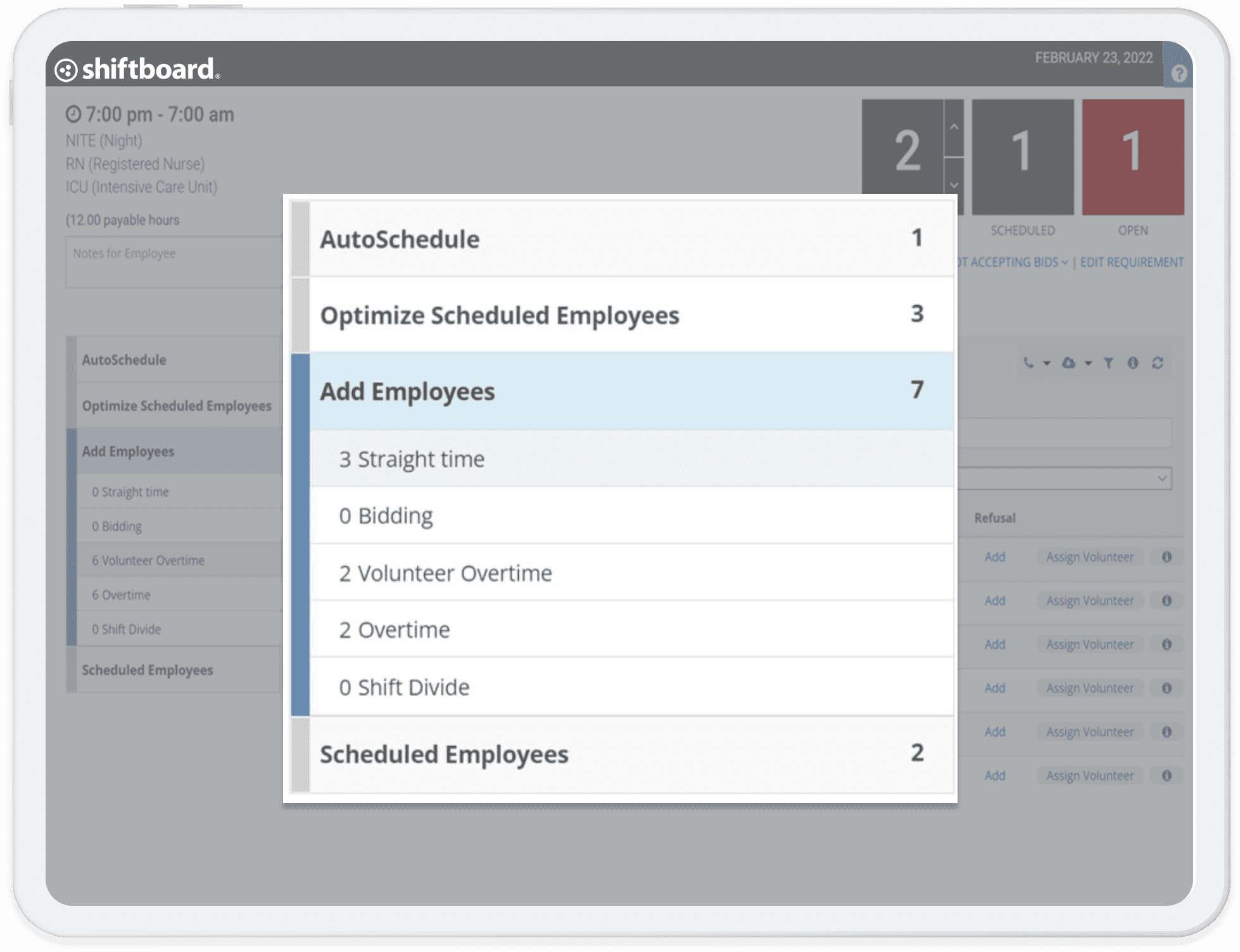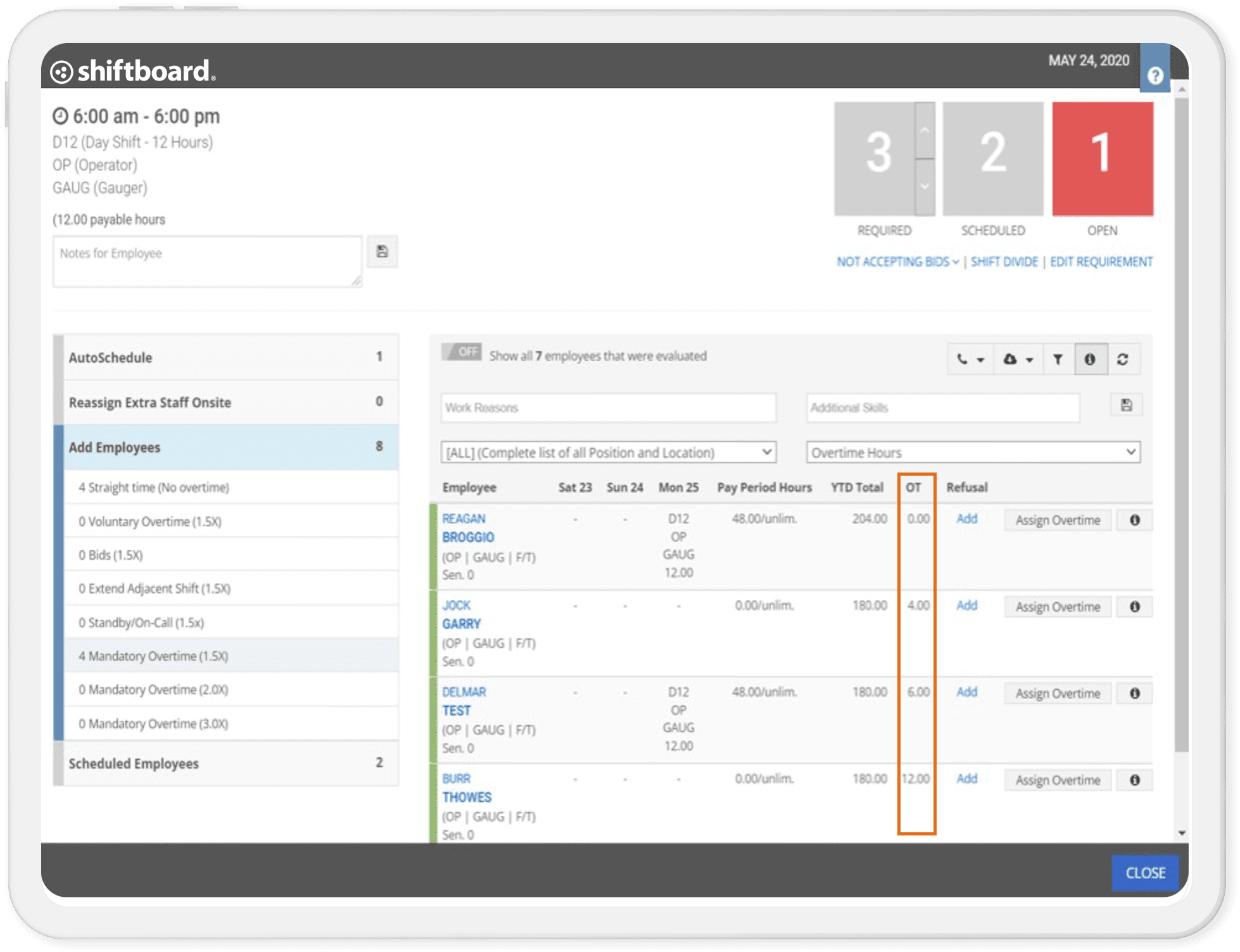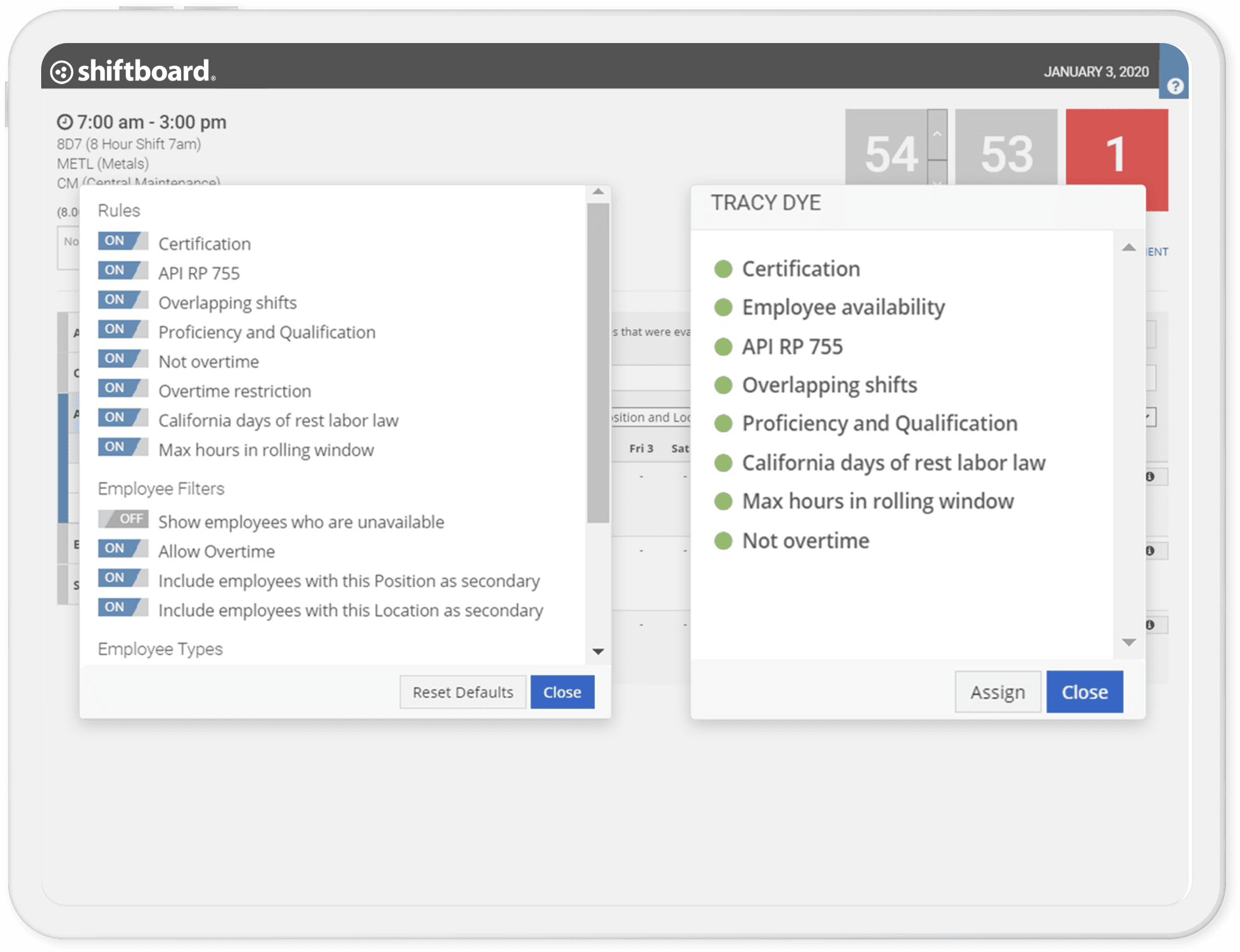
Refineries

Pipelines

Petrochemical

Power Generation

Utilities
Trusted by Leading Energy Organizations

Oil and Gas workers are
8.5 times more likely
to be involved in a vehicle accident due to fatigue.
Almost 9 in 10 employers
say skills shortages are having a negative impact on productivity.
One study found fatigued workers cost U.S. employers more than $136 billion per year in lost productivity.
Ensure Smooth Operations
Automate complex and time-consuming tasks so that coverage is attained quickly and accurately.
- Find coverage quickly with an auto-generated list of available and qualified workers.
- Assign workers in a specific order matching the way each unit operates.
- Notify workers of schedule changes and promote shift openings automatically.

Distribute Overtime Fairly
Balance overtime equitably to ensure worker satisfaction, reduce burnout, and avoid union grievances.
- Auto-update employee work stats, including OT balance, last OT dates, and shift refusals to ensure sound decisions.
- Allocate overtime assignments in the employee priority order required by your OT policy and union contracts.
- Offer workers access to their own OT stats and priority standing to foster trust and transparency.

Mitigate Fatigue and Safety Risk
Accurately enforce fatigue standards such as PHMSA and API RP 755 and provide proof of compliance on demand.
- Automatically block assignments that violate any fatigue rules and recommended practices.
- Make appropriate exceptions with critical insights such as rule impact and severity.
- Run purpose-built audit reports to provide proof of compliance and justify rule deviations.

5 Reasons Energy Companies Choose Shiftboard
1.
Tailor-Fit Scheduling for the Energy Industry
Match the specific scheduling protocols required by each unit with highly configurable workflows. Handle industry-specific scenarios such as Turnaround and Emergency Response Team (ERT) scheduling.
2.
Guarantee Fatigue Standards Compliance
Leverage one of the industry’s most robust rule engines to enforce and track fatigue rules compliance, including PHMSA, API RP 755, and custom Hours of Service (HOS) requirements. The only compliance guarantee available in the marketplace.
3.
Robust Overtime Equalization
Reduce overtime allocation errors and employee grievances by matching the exact overtime counting and distribution methods in your OT policy or bargaining agreement.
4.
Superior Job Proficiency Management
Automatically rotate workers among various jobs to maintain their work eligibility as required by OSHA and in-house policies. Leverage purpose-built reports to project skill mix availability for better training and hiring decisions.
5.
Worker-Friendly Scheduling
Empower employees with secured web and mobile app access to view schedules, trade shifts, pick up additional shifts, request time off, etc.
4 Effective Scheduling Strategies to Increase Workforce Flexibility at Your Chemical Plant
Learn four effective employee scheduling strategies to increase staffing flexibility and improve shift coverage.
Shiftboard for Refining and Petrochemical Solution Sheet
Learn more about how Shiftboard’s solutions can help you maintain compliance, control costs, and improve safety.
Shiftboard saved us almost $3M in costs and is a proven solution for API RP 755 compliance. Employee scheduling was a vital concern at an executive level — They went over and above the call of duty to meet our needs.
Larry Heasley,
HR Manager, Shell

More Energy Industry Insights
Want to learn more about employee scheduling software?
 Decrease Worker
Decrease Worker
Turnover by 16%
 Make Scheduling
Make Scheduling
30% More Efficient
 Increase Shift Coverage
Increase Shift Coverage
Rates by 88%
Frequently Asked Questions
These are some questions we frequently hear from people looking for workforce scheduling software for energy companies.
-
What is fatigue risk management?
A Fatigue Risk Management System (FRMS), as described in API RP 755, refers to a comprehensive framework for addressing the risks that may arise from fatigue. Instead of reactionary measures, it emphasizes the optimization of workplace safety at all levels of an organization, before an incident occurs.
-
What is overtime equalization?
Overtime (OT) equalization is the practice of fairly distributing available overtime shifts throughout a workforce. Providing workers with fair and equal access to OT helps organizations maintain a more and prevents employee burnout and fatigue.
-
Why Shiftboard for employee scheduling in the energy sector?
Shiftboard’s intelligent employee scheduling software is highly configurable and can be tailor-fit to match the specific scheduling protocols required by highly regulated industries such as oil and gas, refining, and petrochemical processing. Leveraging the industry’s most robust rule engines, Shiftboard eases the complexity of managing fatigue rules compliance, OT equalization, and job proficiency management all while championing a worker-friendly approach to scheduling.
-
How does Shiftboard improve job proficiency management?
Employee scheduling software helps by automatically rotating workers among various jobs to maintain their work eligibility as required by OSHA and in-house policies. Additionally, purpose-built reports can project skill mix availability so organizations can proactively train staff and improve hiring decisions.
